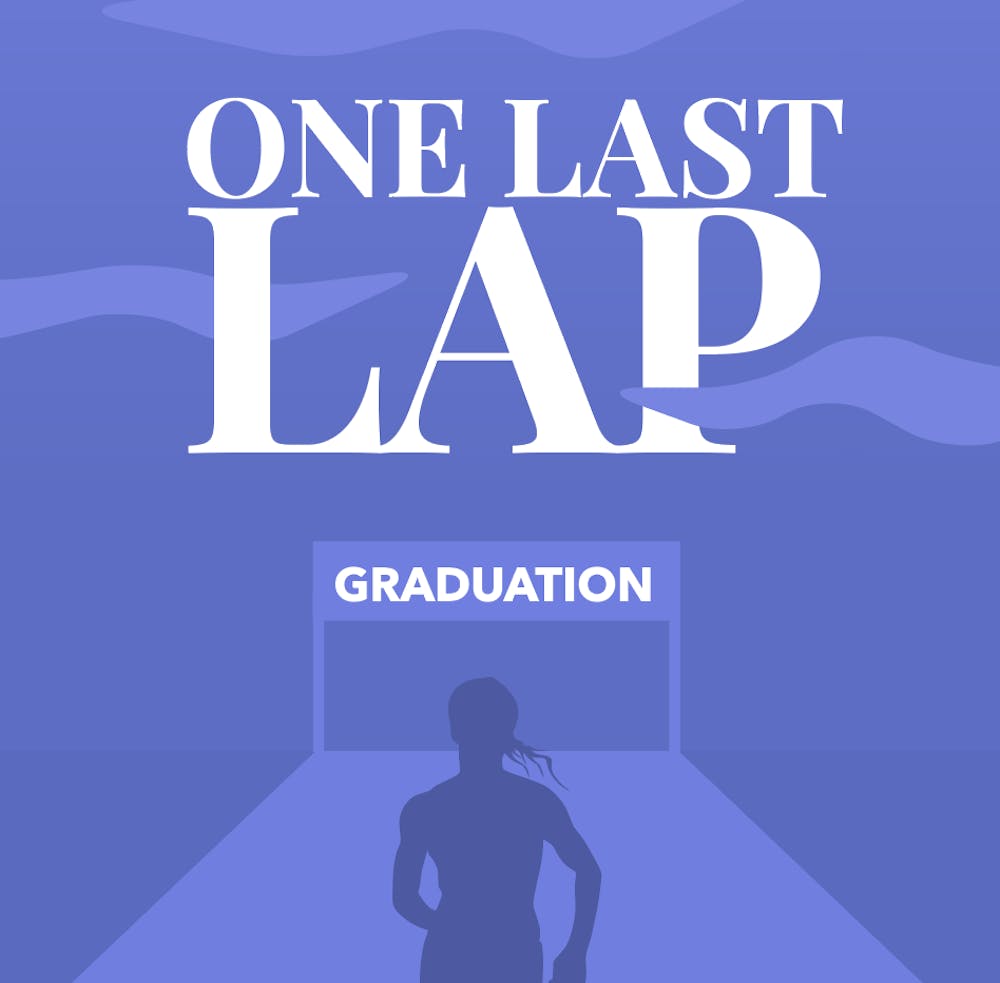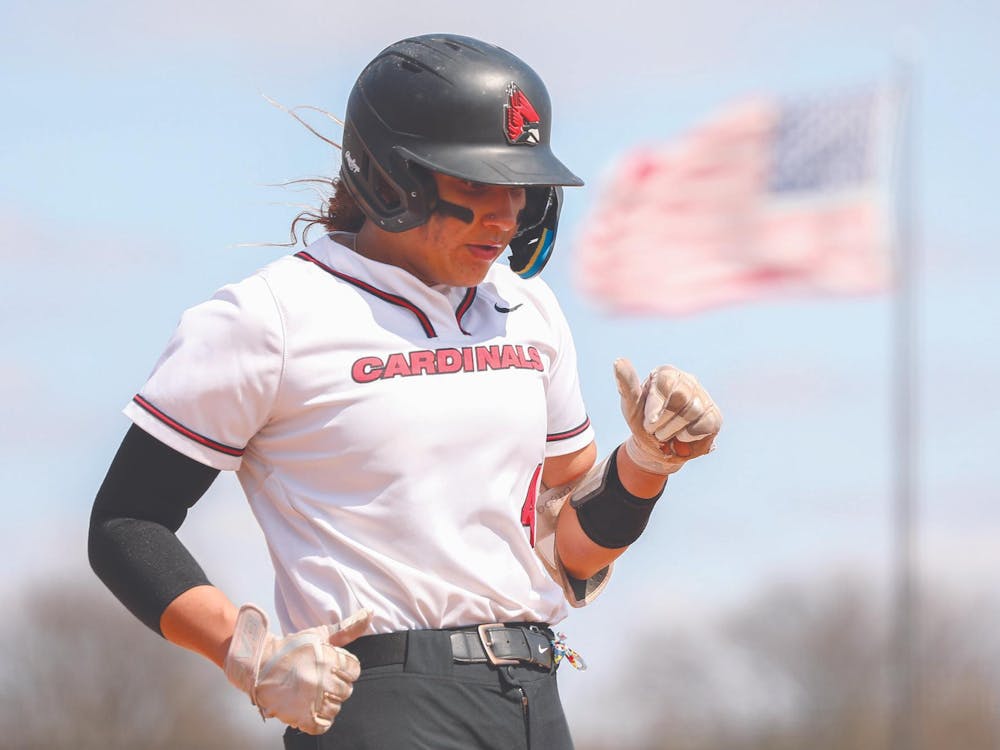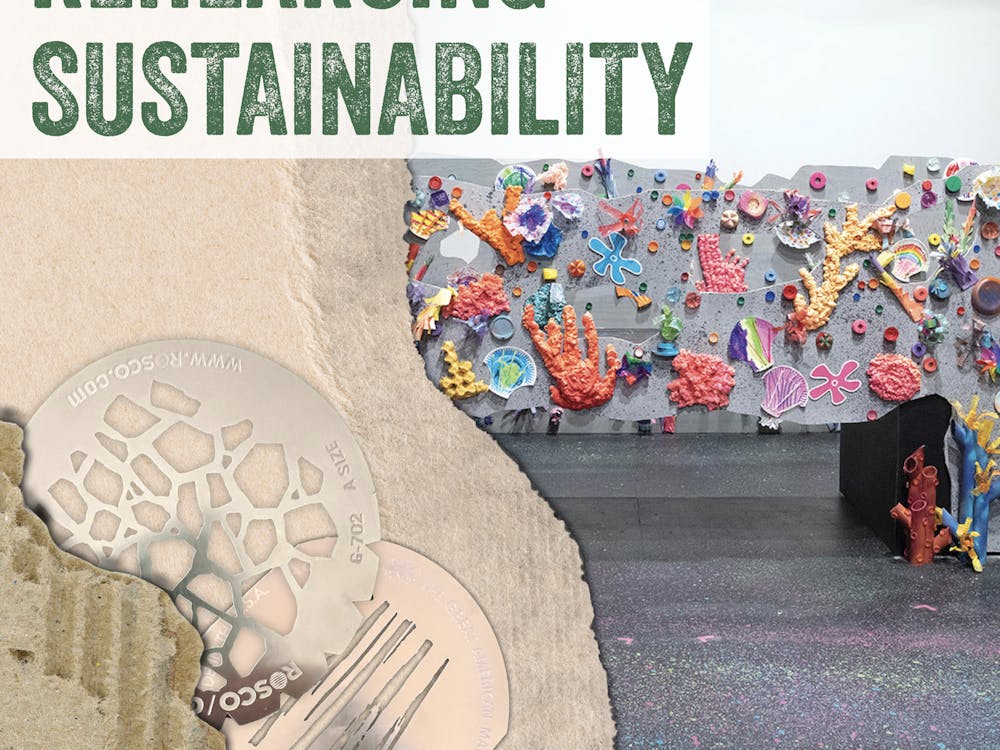Sophie Nulph is a senior magazine journalism major and writes “Open-Minded” for The Daily News. Her views do not necessarily reflect those of the newspaper.
The past 16 years of school have prepared me for this moment. The finish line approaches, and the hundreds of miles, the sleepless nights, the crooked priorities all blur as my pace increases. The track turns to lava under me as I Wile E. Coyote toward the finish, my body on the very edge of breaking.
I keep my head down to dodge the harsh thoughts screaming in my brain, bobbing and weaving through my own insecurities on the track. My lungs burst into flames as my heart works as hard as it can, setting the beat for my pace.
With the finish line approaching, I applied for the December 2021 graduation in the spring, and I beamed for days. For almost a year, I struggled to juggle my schedule. The stresses of school and my newly-found adulthood formed a lethal concoction generous enough to leave a hole in my stomach lining.
Ulcer aside, I worked as a journalist and student through the COVID-19 pandemic, held at least one job at all times, raised my 1-year-old Great Pyrnees puppy, Mabel, and juggled my social life and hygiene. I couldn’t wipe the smile off my face when I got my application email — after three gruesome years of overfilling my workload, it was all worth it.
The past 16 years have prepared me for the moment I apply to graduate, the moment I see the finish line. I have taken dual credits in high school, summer classes and 18 credit-hours four semesters in a row to get me here: graduation.
I run as hard as I can, feeling the burn ricochet through my body as storm clouds swirl overhead. The finish line is illuminated in the dark, the lights carving a path through the increasing darkness, but no matter how fast I run, the finish line stops getting closer.
I worked my way through the last summer break I would get as a student and tested new medications to help my stomach in times of stress. I still had one more semester ahead of me before I could make it. In August, my fears once again turned into reality and I became stuck. My stomach issues came back, and my anxiety made it impossible to leave the house for days at a time. My world was crumbling, and I couldn’t help but feel déjà vu. I had to make the difficult decision to drop two classes after only two weeks of this semester to support my mental and physical health.
I could no longer graduate in December.
I was crushed, and the last 16 years of school could never have prepared me for that moment. The personal pressures fell like a steady rain — outrunning the lightning as the thunder vibrated the slick asphalt beneath me. The environmental pressures threatened hurricane force winds and an 8-foot sea wall.
The decision felt like I was letting everyone down. My parents — who are gracious enough to help me with my undergraduate tuition, my peers — who are all graduating early, moving on to graduate school or getting married, and my 15-year-old self — who only held onto this world for the hope of the future.
When the graduation blow hit, the debris tore through my confidence and drive, while my aspirations were shredded like palm trees, torn from their roots by the tropical storm.
I lost who I was. I knew I didn’t want to be a journalist, but I realized I have only ever known school. The fear is deeper than not knowing who I want to be when I grow up. The terrifying reality is the past 16 years have taught me how to be a student instead of an adult. On top of diving into a job market littered with insecurity, most students must also learn a life without the structure of school for the first time, and that’s intimidating as hell.
Since 2013, Indiana’s 15-to-finish program has set incoming generations on a race against the clock to graduate in four years, yet 2021 data from the Education Data Initiative (EDI) show only one in four college freshmen will be able to obtain a degree in four years. The traditional four-year path can be derailed by factors like transfers, major changes or life challenges — like an ongoing pandemic or mental and physical setback. These factors can easily halt the track, yet talking about such obstacles are taboo when compared to the $9,000 tuition it costs to stay for a fifth year on average.
As we continue to normalize the importance of mental health, we don’t address what makes self-care impossible for so many: time is money. The luxury of taking care of your health comes with a price tag, and college tuition sets students on a race. It’s a race against time, money and, depending on your major, your peers in the industry. According to the EDI, the average American student leaves college with more than $39,000 in debt, while only 30 percent of students are aided by the federal government. Regardless of how normalized prolonged college educations are, the idea of finishing within a normal four-year timeframe kept me up at night with threats of debt and failure.
In August, I had failed myself. My calves were cramping, my lungs couldn’t hold air and my feet were collapsing under me. I fell face-first on the track, and I couldn’t get back up. My insecurities forced me back down, reminding me I couldn’t handle being an adult.
Graduating a semester late, making my stay at Ball State eight semesters total, means one more semester stuck in Indiana, stuck in the rift of life that forces me to be an adult and a kid all at once. When I prolonged my graduation date, I had to come to terms with more than just letting 15-year-old Sophie down and failing the academic goals I set for myself. I had to come to terms with spending more money, and therefore working more hours — meaning time away from Mabel and my boyfriend of six years as I trudged through the day with weights chained around my ankles.
The race grew harder — nearly impossible — until I finally realized there was nothing wrong with four years. There’s nothing wrong with five, or three, or taking a gap semester and coming back to study something completely different than what you originally had planned.
No one said you had to have it all figured out by the time you flip your tassel over your cap and say goodbye to the dining hall food you’ve been eating for however long you spent on campus, and the longer we continue to put those pressures on ourselves, the more likely we are to end up in situations that leave us feeling unhappy, unfulfilled and unsuccessful — because we didn’t listen to what our bodies and minds were telling us we needed.
There is nothing wrong with doing right by you, and I am still unlearning the past 16 years of study habits and unrealistic expectations that made me believe the opposite, but now I have one last lap to give myself the time.
Contact Sophie Nulph with comments at smnulph@bsu.edu and on Twitter @nulphsophie.





